Permadeath has been a staple of many video games for a very long time now. While it’s often attributed to roguelike games and other randomly generated romps, one could say that running out of lives in a game like Super Mario Bros and having to start over from scratch is a similar concept. The threat of punishment dangling over one’s head like a swinging pendulum blade is often the motivation to rise to the challenge and overcome the obstacle, which has been the core element of games since the dawn of time.
Despite this, permadeath is more prevalent in certain genres than others. The aforementioned roguelikes usually have this is a cornerstone, where each new run of the game is from the beginning and how your adventure shapes is procedurally generated on the fly. There may be more recent games which grant you bonuses or unlock new elements to the procedure from previous runs, such as The Binding of Isaac or Rogue Legacy, but death remains permanent and has you starting over each time.
This is rarely the case in games that have more of a narrative focus and defined characters, but there is one exception that I want to talk about: Fire Emblem.
In the vast majority of RPGs on the market, death is rarely permanent unless it’s tied to cutscenes or plot development.
You might go down in battle, but you’ll still be kicking for the next one, and this is usually to keep the narrative consistent. It would make little sense for a plot relevant character to die to random monsters and thus end the story entirely.
But Fire Emblem is different. While the main character dying is usually an exception and will trigger a game over, a character that dies in a Fire Emblem game dies for good. This has been a series constant from the original iteration on the NES all the way to the most recent titles (though the series has started to include the Casual difficulty setting which removes this permadeath — more on that shortly).
The interesting thing about this is that most of the characters are actually unique and individual characters. They will have their own personalities and quirks, which often are revealed through dialogue either during missions or in conversations made in between chapters. From the third game (Mystery of the Emblem, SNES, 1994) onwards, the Support system has seen characters that fight together in battle develop friendships and even relationships, gaining stat bonuses in battle. This led to support conversations occurring from the sixth game (The Binding Blade, GBA, 2002 – the one with Roy in it!) onward, and was compounded even further in the most recent titles: depending on who forms relationships with who, their children will enter the battle and gain specific stats and traits based on their parents. A rudimentary form of the child characters was even in the fourth game in the series — it’s named Genealogy of the Holy War (SNES, 1996) for crying out loud — so it’s fair to say that it’s always been a staple of the franchise.
As such, I find it quite surprising that it’s completely possible for these characters to die in the course of a standard mission and be gone for good. Sure, the support conversations and interactions are largely optional fluff and will rarely impact the plot – not to mention that some plot important characters are merely injured and remain on set for cutscenes while unable to fight — but it still feels strange that such large attachments can come to developed characters only for them to be cut short.
When compared to a game like XCOM, which is arguably one of the closest in terms of strategy style to Fire Emblem, the threat of permadeath makes more sense. Each individual unit on an XCOM squad may be more important to successfully clearing missions and winning the campaign, but they rarely if ever have any plot relevance or personality at all.
Any attachment the player has with their squad is built up entirely from gameplay experiences, such as when the sniper got a lucky crit and saved three members in a bad situation, or with the heavy who has been present and unhurt in a dozen straight missions. In fact, it’s quite rare for a standard XCOM game to not feature a character that the player will eventually have an interesting anecdote for, but this is once again less related to their plot relevance and more about how they became snake food.
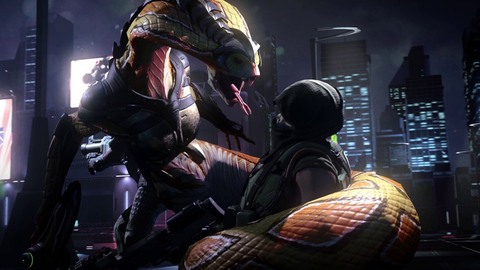
In XCOM, beating the mission and advancing is the primary reward of the game. In Fire Emblem, this is still the primary reward of the game, but there’s also the secondary reward of getting to see the characters and their stories or relationships develop further. It’s a big allure for many players, myself included.
So the characters die. You can still continue on without them, right? Sure, but… you’ll find that very few people actually do. It’s more common for a player to make a mistake, lose a character, and then simply restart the chapter over and try again without losing them. In the most recent games, in-battle saves have been built in to make this smoother and minimize lost turns, but in the older games you’ll be forced to start the entire chapter over. In particularly long and grueling missions, this could mean an hour or more lost if a mistake is made too close to the end of the level.
And sometimes it isn’t even a mistake that causes permadeath. Again, like XCOM, Fire Emblem’s combat is entirely determined by dice rolls. Individual character stats, levels and weapons may game the system in your favor, but a 5% chance for an enemy to hit and kill your unit will still happen occasionally. A near guaranteed hit will fail and leave your flank exposed. Over the course of a long campaign with many missions — like the games tend to have — this will add up more than you’d expect.
Ask just about any Fire Emblem player and they’ll have a story of the dreaded 1% chance to crit that nonetheless wiped out their best unit and forced a restart…
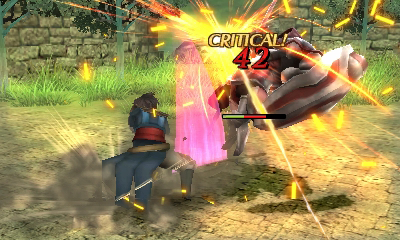
There’s other gameplay reasons why losing a unit is usually cause for restarting a level, too. In all but a handful of games in the series, experience for leveling up units is a precious and limited commodity. With only a finite amount of missions and resources, not every character can be used to the maximum, and a player will usually develop a core roster to challenge most missions. Losing one of these core members can be a huge loss of total experience and leave a particularly underleveled unit taking their place. If you consider that even stats gained at level are also randomly generated, a particularly bad string of luck can see you getting completely screwed. Few people will take the chance to not restart.
Despite all of this, permadeath is still the default setting in Fire Emblem. For all the character development and attachment, both in narrative and gameplay sense, all of it can still be lost in one single mistake or unlucky mishap and force a player to discard their time and effort and try again.
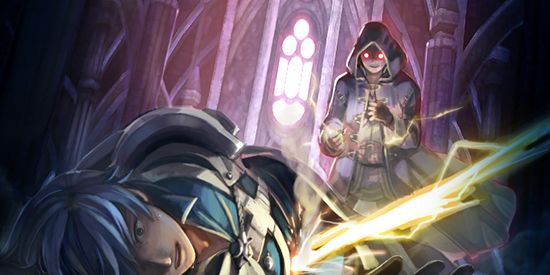
At this point, it’d be fair to say that the inclusion of permadeath in Fire Emblem is largely tradition.
It’s been present since the beginning of the series, which was released when permadeath was fairly standard in games and such punishment was the norm. Quite a few trends in video games have changed since then, even within the series itself, but this one remains firmly entrenched.
While one could argue that it could stand to be removed entirely, this would likely make a lot of series veterans angry at the change. The added challenge of having to execute your strategy perfectly and hoping that luck doesn’t destroy you is a core element to numerous players who are drawn back to the series with each new game. If only to placate longtime fans, it’s unlikely that permadeath will ever be completely removed from the series.
Still, more and more features to counteract this have been added to more recent titles. Game twelve in the series (New Mystery of the Emblem for those keeping score, DS, 2010) saw the first appearance of the Casual mode setting, which sees defeated units return again in the next chapter. This appeared in both games hence, and was accompanied by Phoenix mode in the recent Fire Emblem Fates, which sees defeated units return only a turn later (and is only available on Normal difficulty).
While the absence of the threat of permadeath makes the game significantly easier, it can still be used in conjunction with higher difficulties to provide a reasonable challenge, and means any punishment doesn’t come from losing massive time, gameplay, and personal investments.
Of course, there’s also numerous players who criticize the inclusion of this mode, claiming it removes any satisfaction or challenge from the game while citing the Dark Souls mantra of “get good” to those who use it. But it’s a valid and supported way to play it nonetheless. Everyone has their own preferred way of playing, and having more options is usually far better than have less.
The continued presence of permadeath in a somewhat uncharacteristic genre is an interesting point to consider, I feel. What do you guys think? Feel free to share your viewpoints and preferences in the comments.

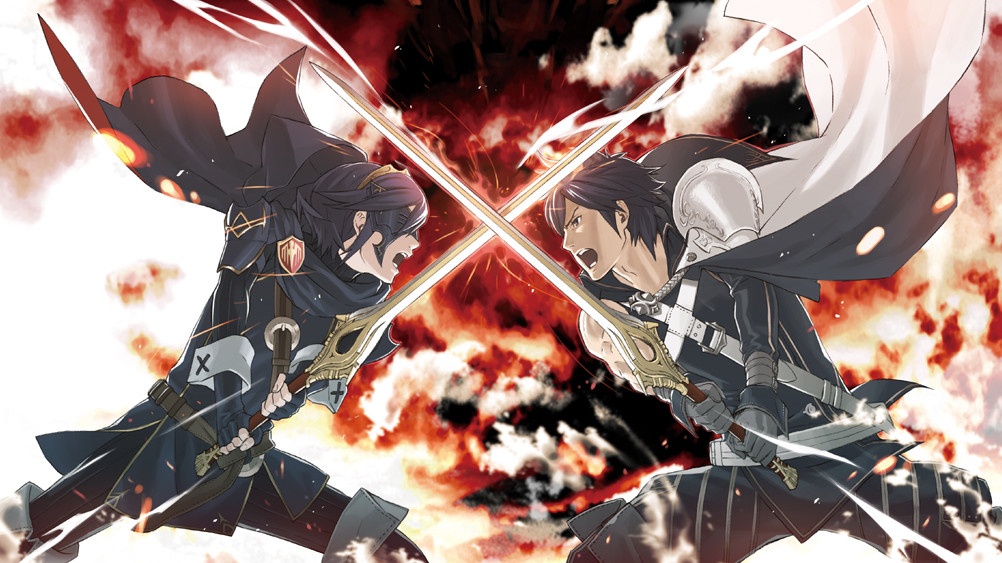
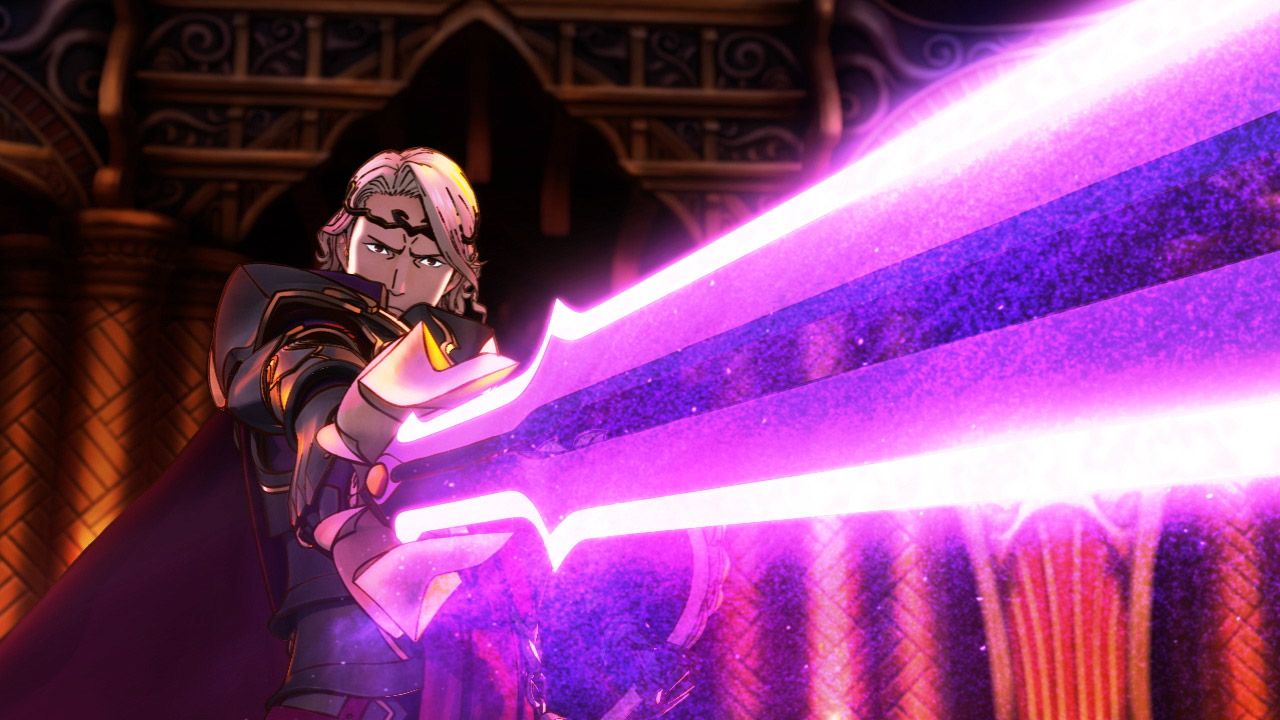





Published: Aug 17, 2016 07:31 am